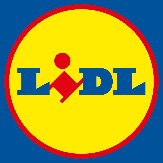The High Court has handed down its long-anticipated ruling in Lidl's claim against Tesco following its 2020 launch of a yellow and blue Clubcard logo. The Court concluded that Tesco's use of the Clubcard logo infringed Lidl's trade mark for its own yellow and blue logo by taking unfair advantage of Lidl’s reputation for value and being detrimental to the distinctive character of the Lidl logo. It also amounted to copyright infringement and passing off. However, the Court did accept Tesco's counterclaim that another logo mark (the 'Wordless Mark'), and subsequent filings for this mark, had been filed in bad faith.
The judgment deals with a number of interesting issues relating to unfair advantage/detriment to distinctive character, whether use of a mark with text overlaid constitutes use of the mark without text, bad faith trade mark filings, the value of survey (and so-called 'vox pop') evidence and adverse inferences that may be drawn when evidence is not submitted.
Background
Lidl is a German ‘discounter’ supermarket retailer, operating in the UK since 1994. As one of two leading ‘discounter’ supermarket retailers in the UK, Lidl’s business model is based on giving its customers the best value possible; specifically quality goods at low prices. This has been conveyed since 2017 through its marketing slogan in “Big on Quality, Lidl on Price”.
Lidl owns UK trade mark registrations in two versions of the Lidl logo: the logo which includes the word “LiDL” (the “Mark with Text”) and a version without that word as shown below (the “Wordless Mark”) together the "Lidl Marks". Since it opened in the UK in 1994, Lidl has continuously used the Mark with Text throughout its stores, advertising and on its products; its use of the Wordless Mark was a live issue in these proceedings.


Mark with Text Wordless Mark
Tesco’s Clubcard scheme was launched in 1995 and was created as a loyalty scheme to reward customers. In September 2020 Tesco launched its ‘Clubcard Prices’ promotion to promote Clubcard in a new way, by providing discounts to Clubcard holders at the point of sale on selected goods and by using the allegedly infringing signs throughout its stores, signage and advertising.
Tesco's signs incorporate a yellow circle within a blue square containing text including the word “Clubcard” (the “CCP Signs”). An example is shown below.

Lidl issued proceedings against Tesco before the High Court, asserting that Tesco’s use of the CCP Signs constituted trade mark infringement of both Lidl Marks, on the basis of taking unfair advantage of the reputation of the Lidl Marks and diluting that reputation and distinctive character, as well as passing off and copyright infringement.
Tesco counterclaimed that the various registrations for the Wordless Mark were liable to be declared invalid or should be revoked for lack of distinctive character, non-use and bad faith.
What did the Court decide?
Tesco’s use of its CCP Signs infringed Lidl’s trade mark rights in the Lidl Marks, including the Mark with Text (which it was accepted had the necessary reputation), by taking unfair advantage of Lidl’s reputation for value and being detrimental to the distinctive character of the Lidl Marks.
- Despite the differences in the word elements (i.e., “Clubcard Prices” on the CCP Signs and the graphically stylised “LiDL” on the Mark with Text), the Court considered that the average consumer perceiving these signs as a whole would regard them as similar. The visual similarity was the determining factor. The text was an important point of difference but it did not extinguish the impression of similarity conveyed by the background of a yellow circle, in the middle of a blue square.
- There was sufficient evidence of both origin confusion and price comparison confusion by the public to establish a link with Lidl, together with evidence that Tesco was aware of the potential for confusion. Importantly, this included the 'vox pop' evidence which demonstrated the spontaneous and unprompted drawing of a link by members of the public encountering the signs in the real world.
- The Court accepted Lidl’s evidence as to the dilution of its brand, namely that until Tesco began using the CCP Signs, no other supermarket was using a logo that looked anything like the Lidl logo. This changed following Tesco's extensive use of the CCP Signs in its stores and in all major marketing channels. The Court found that the evidence supported the proposition that Tesco’s campaign had been successful in slowing consumers switching to discount supermarkets that was otherwise occurring.
- The Court further considered that, due to the resemblance between the CCP Signs and the Lidl Marks, Tesco had taken unfair advantage of the distinctive reputation which resides in the Lidl Marks for low price value. The Court accepted that Tesco's use meant that consumers would think that Tesco had price checked relevant products against Lidl (when they had not); longer term, Tesco's value proposition would be improved by the association with Lidl's reputation.
Tesco was passing off through 'misrepresentation by equivalence'.
- The Court concluded that, as a substantial number of customers would be deceived by the CCP Signs into believing that Tesco was offering the same value as Lidl or that it was price matching, this amounted to passing off.
Tesco’s CCP Signs had been copied from the Lidl Marks and Tesco had therefore infringed Lidl’s copyright.
- The Court found that the Lidl Marks qualified for copyright protection as original artistic works (due to the combination of text, colours and shapes).
- A visual comparison of the CCP Signs and the Mark with Text indicated that the similarities were sufficiently close that they were more likely to be the result of copying than mere coincidence. Accordingly, as it was common ground that Tesco had access to the Lidl Marks, the burden was on Tesco to provide an explanation for that similarity, such as independent creation.
- Tesco was unable to do so: part of its evidence was found to be "inaccurate", and the Court also drew adverse inferences from the failure to call anyone from its external agency to give evidence. The Court inferred that such evidence would have been adverse to Tesco's case on the development of the design of the CCP Signs.
The Wordless Mark had distinctive character and had been genuinely used by Lidl.
- Tesco counterclaimed that the Wordless Mark was invalid for lack of distinctive character, and also should be revoked for non-use.
- Survey evidence produced by Lidl persuaded the Court that the Wordless Mark was perceived by a significant proportion of consumers to indicate the goods/services of Lidl and it therefore was held to be distinctive.
- Additionally, applying the reasoning of Kitchin LJ sitting as a Court of Appeal judge in Specsavers v Asda, the Court found that consumers (both Lidl’s and Tesco’s) understood the Wordless Mark in itself (without the additional LiDL text) to be distinctive of Lidl, not merely as decorative background, but rather as a “logo” or “brand”. The Wordless Mark therefore had been genuinely used by Lidl.
However, some of Lidl's Wordless Mark registrations were held to be filed in bad faith and were therefore invalid
- Tesco further counterclaimed the Wordless Marks were invalid on grounds that they had been filed in bad faith. The successfully challenged registrations were filed in 1995, 2002, 2005, 2007, with a further pending application filed in 2021 that was held not to have been filed in bad faith.
- Tesco argued that the first (1995) registration was a legal artifice, filed solely for the purpose of deployment as a legal weapon in proceedings. It argued that the later wordless marks were all 'evergreened' versions of the 1995 registration and there was no reason for Lidl to re-apply for the same marks and goods/services other than to avail itself of a fresh grace period during which it would not be required to show use of the marks.
- Following the earlier decision of the Court of Appeal in relation to Tesco's strike-out application, the burden was on Lidl to prove its subjective intentions at each of the relevant filing dates to rebut the allegations of bad faith.
- As Lidl did not provide sufficient (or indeed any) contemporaneous evidence demonstrating that its intention at the relevant filing dates were legitimate, the Court concluded that it had not displaced the prima facie inference raised by Tesco that the 1995 registration was filed as a legal weapon and that the 2002, 2005 and 2007 registrations were intended to "evergreen". The Court therefore found the subject marks were filed in bad faith and were invalid. This was despite finding that Lidl had made extensive use of the Wordless Mark (as set out above) and that it was distinctive.
- However the Court did not consider the bad faith counterclaim to have been made out against the 2021 filing. It was significant that there had been a 11-year gap between the respective filing dates, and there was evidence that by 2021 Lidl believed that it was genuinely using the Wordless Mark.
Comment
This judgment includes some notable findings in relation to bad faith and also the assessment of similarity of marks.
Tesco's successful (for the most part) bad faith counterclaim was ultimately not sufficient to negate a finding of infringement, as it was found to have infringed not only the Wordless Marks but also the Mark with Text.
In providing compelling survey and expert evidence, Lidl was able to satisfy the Court that a large proportion of consumers would perceive a yellow circle within a blue square (i.e. the Wordless Mark) as associated with the Lidl brand, even without the word "LiDL".
In particular, Lidl’s 'vox pop' evidence was important, because it showed that a significant number of consumers encountering Tesco's CCP Signs in real life were, unprompted, making a connection to Lidl and/or had assumed that Tesco was price matching against Lidl shoppers.
Tesco has indicated that it intends to seek permission to appeal.